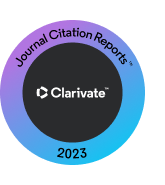EMERGENCE AND GROWTH OF TOMATO (LYCOPERSICON LYCOPERSICUM L. SOLANACEAE) IN SOIL CONTAMINATED BY PESTICIDES
DOI:
https://doi.org/10.5327/Z2176-947820180364Keywords:
phytotoxicity; abamectin; difenoconazole.Abstract
Considering the need to understand the effects that pesticides pose to non-target soil organisms, the effects of two pesticides, commonly used on tomato crops (Lycopersicon lycopersicum), were investigated considering germination and growth of the plants as measurement parameters. Natural, dried and defaunated soil was inoculated with a microbial substrate and contaminated with the insecticide (Active Ingredient (AI) abamectin), the fungicide (AI difenoconazole) and a mixture of both products. The tests were performed after 0, 28, 56 and 84 days from soil contamination, according to OECD 208 and ISO 11269-2 guidelines. Plants height, fresh and dry mass, and also microbial biomass carbon were measured. The parameters exhibited an increase over time for all treatments, showing no toxicity to the organisms tested under the above conditions.Downloads
Download data is not yet available.
Downloads
Published
2018-12-03
How to Cite
da Rocha, A. G., Espindola, E. L. G., & Oliveira, V. B. de M. (2018). EMERGENCE AND GROWTH OF TOMATO (LYCOPERSICON LYCOPERSICUM L. SOLANACEAE) IN SOIL CONTAMINATED BY PESTICIDES. Revista Brasileira De Ciências Ambientais, (49), 95–107. https://doi.org/10.5327/Z2176-947820180364
Issue
Section
Articles
License
Copyright (c) 2018 Revista Brasileira de Ciências Ambientais

This work is licensed under a Creative Commons Attribution 4.0 International License.


























